新概念英语第二册 L74-75 讲义 史上最全!
- 格式:doc
- 大小:66.50 KB
- 文档页数:5
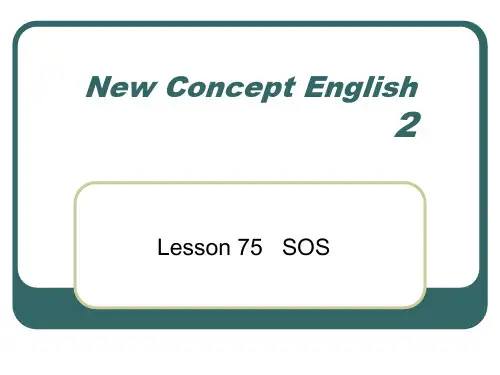
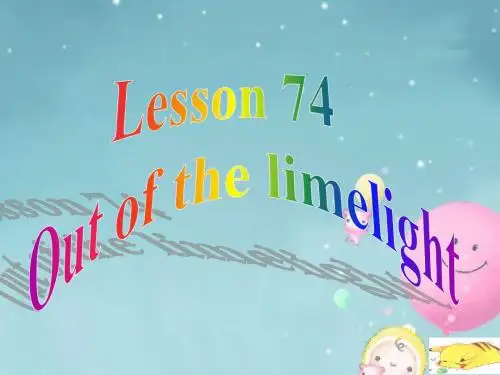
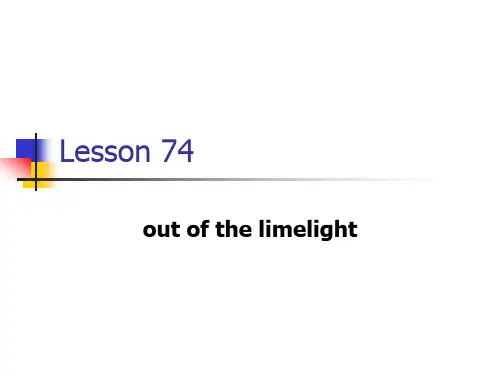

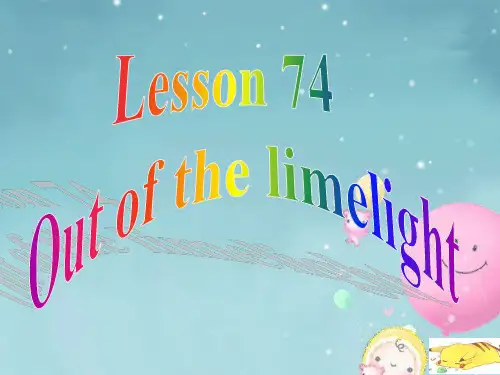
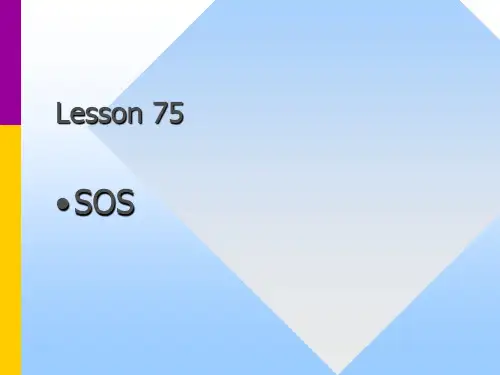
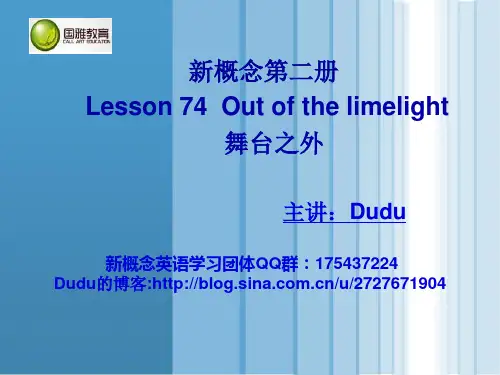
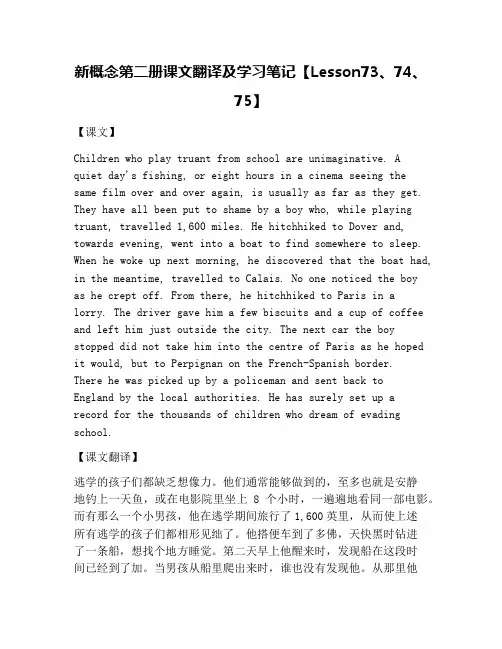
新概念第二册课文翻译及学习笔记【Lesson73、74、75】【课文】Children who play truant from school are unimaginative. Aquiet day's fishing, or eight hours in a cinema seeing the same film over and over again, is usually as far as they get. They have all been put to shame by a boy who, while playing truant, travelled 1,600 miles. He hitchhiked to Dover and, towards evening, went into a boat to find somewhere to sleep. When he woke up next morning, he discovered that the boat had, in the meantime, travelled to Calais. No one noticed the boyas he crept off. From there, he hitchhiked to Paris in alorry. The driver gave him a few biscuits and a cup of coffee and left him just outside the city. The next car the boy stopped did not take him into the centre of Paris as he hoped it would, but to Perpignan on the French-Spanish border.There he was picked up by a policeman and sent back toEngland by the local authorities. He has surely set up arecord for the thousands of children who dream of evading school.【课文翻译】逃学的孩子们都缺乏想像力。
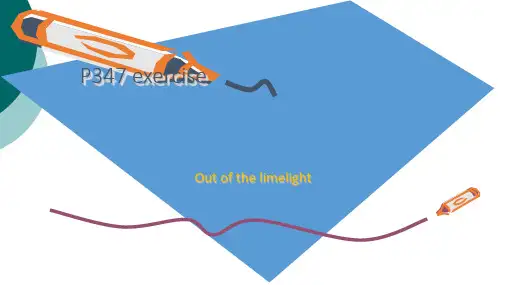
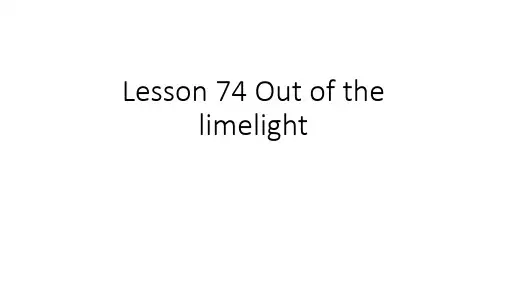
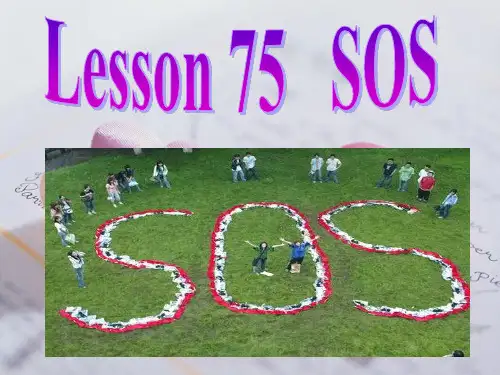
新概念第二册Lesson 75 SOS一、单词精讲thick[θik] a.厚的引申:可表示关系亲密、浓厚,如形容友谊、氛围等;还可表示头脑迟钝的。
搭配:thick fog(浓雾)thick hair(浓密的头发)thick with sb.(与某人关系密切)例句:The air was thick with smoke.(空气中浓烟弥漫。
)They are very thick with each other.(他们彼此关系很亲密。
)signal['signəl] n.信号引申:可表示预示、标志着某种情况或事件即将发生。
搭配:traffic signal(交通信号)give a signal(发出信号)。
例句:A red light is a signal to stop.(红灯是停止的信号。
)His words were a signal of his change of mind.(他的话预示着他改变了主意。
)stamp[stæmp] v.跺,踩引申:可表示用力踏或踩而留下印记,也可表示坚决地表明态度。
搭配:stamp on(踩踏;压制)stamp out(扑灭;踩灭)。
例句:He stamped on the spider.(他踩死了那只蜘蛛。
)The government is determined to stamp out corruption.(政府决心杜绝腐败。
)helicopter['helikɔptə] n.直升飞机引申:可表示像直升机一样快速升降、移动的事物,用于形容某种动作或物体的移动方式。
搭配:helicopter pilot(直升机飞行员)by helicopter(乘坐直升机)。
例句:They arrived at the island by helicopter.(他们乘坐直升机到达那个岛屿。
)词源:由希腊语“helix”(螺旋)和“pteron”(翅膀)组成,意为螺旋桨飞机,即直升机。
Lesson 75 SOS【New words and expressions】(6)thick adj. 厚的signal n. 信号stamp v. 跺,踩helicopter n. 直升飞机scene n. 现场survivor n. 幸存者词汇详解★thick形容词 a.1.厚的;粗的How thick is the board? 这块板有多厚?2.浓的,浓厚的;粘稠的;混浊的It is dangerous to drive in a thick fog. 在浓雾天驾车很危险。
3.充满...的;长满...的[F][(+with)]The air was thick with smoke. 空气中烟雾弥漫。
4.茂密的;密集的We saw a few huts by the edge of the thick forest. 我们在密林边缘看见几间小茅屋。
5.(口音)重的;(声音)浊的;口齿不清的6.【口】(脑子)迟钝的;思路不清的;笨的I have a thick head.我脑子笨。
7.【口】亲密的,很友好的[F][(+with)]He is thick with my brothers. 他与我兄弟过往甚密。
副词ad.1.厚厚地;密集地Don't spread jam that thick. 别把果酱涂得那么厚。
2.浓浓地;强烈地My heart beat thick during the interview. 在面试过程中我的心跳得厉害。
★Signal 名词 n. [C]1.信号;暗号[+to-v][+that]A red lamp is used as a danger signal. 红灯用作危险信号。
2.信号器;交通指示灯;【铁】信号机The car must stop when the signal's red. 信号机是红色时,车必须停驶。
3.导因;近因;导火线[(+for)]A black woman’s death soon turned out to be the signal for uprising!形容词 a.1.作为信号的[B] the lamp is used as the signal light in the fog。
Lesson 74 out of the limelight【New words and expressions】生词和短语(7)舞台灯光预防措施狂热者,迷遮荫的司法长官告示冷笑【课文讲解】1、Out of the limelightlimelight 的原义为舞台照明用的“石灰光”,其引申意义为“众人注目的中心”,这里的limelight 是指舞台。
She has been in the limelight since she became an actress.Although he is a government official, he tries to keep out of the limelight.2、An ancient bus stopped by a dry river bed and a party of famous actors and actresses got off. river bed指河床,名词river 作形容词用,类似的还有flower bed(花坛)party作量词用时表示“一行,一伙,一群”等,如a party of tourists/boys一群旅游者/男孩等。
3、Why don't we come more often?“Why +don’t/doesn’t +主语+动词?”结构可用来提出建议:4、'Now you get out of here, all of you!' he shouted.get out of here 从这里走开,滚出去,滚开get fuck out of here 给我从这滚出去5、I'm sheriff here. Do you see that notice? It says "No Camping" -- in case you can't read!'I'm sheriff here. (sheriff 是一种官衔,官衔前面不加冠词)He is president. 总统(官衔)Who is monitor? 谁是班长(官衔)I am a teacher. teacher 不是官衔,要加不定冠词in case +从句假使,万一……的话,免得,以防万一(常用于引导条件或目的状语从句,当句子表示将来的时间时,in case后面必须用现在时态或should/might)in case you can't read 除非你们不识字。
I’m taking a raincoat with me in case I need it.In case he comes/should come, give him this letter.6、Don't be too hard on us. I'm Rockwall Slinger and this is Merlin Greeves.'be hard on…对……(过分)严厉Don’t be too hard on that child.He is always hard on his employee.【Special Difficulties】与get 有关的一些短语动词get out①(使)出去/出来(反义词为get into)Why don’t you get the dog out?The door is locked. I can’t get out.②走开,滚开(常用于祈使句)Now you get out of here fast!get into 进来I’ve lost my key. I can’t get into the house.get on①前进,进展(与get along同义)He is getting on quite well in his new job.②继续干;相处融洽(常与with 连用)Tom talked with his brother for a while, and then got on with his homework.He’s so difficult. I can’t get on with him. 他这个人这么别扭,我无法和他相处。
get…off 脱下,除去/取下Please help me to get the box off the boat.When he got the lid off the box, he saw a man lying in it.get off 没受重伤/重罚而逃脱(常与with连用)Tom was punished, but Jim go off lightly.I can hardly believe that the thief got off with just a warning.get over①恢复过来,痊愈Has your mother got over her illness?②解决/结束(某件不愉快但必要做的事)(常与with 连用)They wanted to get the job over as quickly as possible.get though①通过(考试、测验等)Have you got through your driving test last week?②吃掉,喝完,用光Fancy Helen getting through all the food!用于公共标语的no公共标语通常字数很少,语言精练。
在表示“禁止……”时往往用no+名词/动名词或名词短语,如No Camping(禁止野营),No Smoking(禁止吸烟),No Parking(禁止停车),No Left Turn(禁止左转弯)。
在真正的公告牌上,这些标语往往全部用大写字母,不加标点,如NO SMOKING等。
在公告牌上我们不用Do not camp,而用No Camping。
【Multiple choice questions】5Why don't we come more often? We____ come more often.(a) could (b) would (c) might (d)shouldwhy not do 表示一种建议Why don't you go with me? =Why not go with me?建议句型:①you must/should 你必须/你应该(最好不要用)②why don't we/why not③let's doMay I have your name?Why not close the door?Would you mind closing the door?Let's go shopping7 __a__ you look at the notice, you'll see it says ‘No Camping ’.(a) If (b) Providing that (c)Whether (d)In the situationproviding that (过时,不用) = if =provided that(仍然在使用)后面加从句。
Lesson 75 SOS【New words and expressions】生词和短语(6)厚的信号跺,踩直升飞机现场幸存者★survivor n. 幸存者(指人)survival n. 幸存的东西survive v. 生存;存活下来the person who survivedI learn how to live, but now I know how to survive. (生存)I survived after the fire. (存活下来)survive + sth.(灾难) 经过某种灾难还存在,还活着I survived the fire.The house survived the earthquake.★scene n. 现场①n.(事件发生的)地点,现场A helicopter soon arrived on the scene to rescue the survivors.一架直升飞机很快飞抵出事现场,搭救幸存者。
These things were found at the scene of the murder.②n. 风景,景色;景象A beautiful scene always makes me delighted.I have just seen a sad scene.【课文讲解】1、When a light passenger plane flew off course some time ago, it crashed in the mountains and its pilot was killed.off course 脱离轨道fly off course 飞行偏离航线During the storm, the ship went off course.kill v. 杀(仅表示死了,不一定是人为的杀死,有可能是火灾等)Fire in Tokyo. Five people killed. Ten persons injured.(受伤)murder v. 谋杀(故意杀死)2、It was the middle of winter.middle of winter 隆冬middle of summer 盛夏3、Snow lay thick on the ground.lay 是系动词,thick是形容词作表语,表示主语的状态或性质。
The old man lies ill and neglected in bed.4、The woman knew that the nearest village was miles away.miles away 几英里之外(距离的表达方式)5、When it grew dark, she turned a suitcase into a bed and put the children inside it, covering them with all the clothes she could find.turn…into…= change sth. into …把……变成……6、The woman kept as near as she could to the children and even tried to get into the case herself, but it was too small.as…as sb. can/could = as…as possible 尽可能的……He got through as much food as he could and set out.Tell Jim to come to my office as soon as he can.near to = close to7、Early next morning, she heard planes passing overhead and wondered how she could send a signal.hear sb. doing sth. 听见某人正在做某事overhead adv. 从头顶wonder = want to know8、Then she had an idea. She stamped out the letters 'SOS' in the snow.stamp out 踩出out 在这里为副词,表示“出现,显露”等The writer has brought out another book.He wrote out a long list of all the foods which were forbidden.SOS = Save Our Souls 国际通用的呼救信号in the snow 在雪地上9、Fortunately, a pilot saw the signal and sent a message by radio to the nearest town.by radio 通过广播10、It was not long before a helicopter arrived on the scene to rescue the survivors of the plane crash.long before = long long ago 很久以前It was not long before + 从句不久就……(指过去)It was not long before he went abroad.It was not long before I finished my homework.It will not be long before…不久就……(将来可能发生的事)It will not be long before he gets over his illness.before long 不久以后(一般将来时,从现在算不久以后会怎么样)Before long, he will go abroad.shortly before ……之前不久shortly after ……之后立即on the scene 在现场(固定短语)【Special Difficulties】可以表示“变成”的一些动词grow,turn,go,get,com,fall 等动词均有“变成”的意思,但它们在用法上有时有差别。